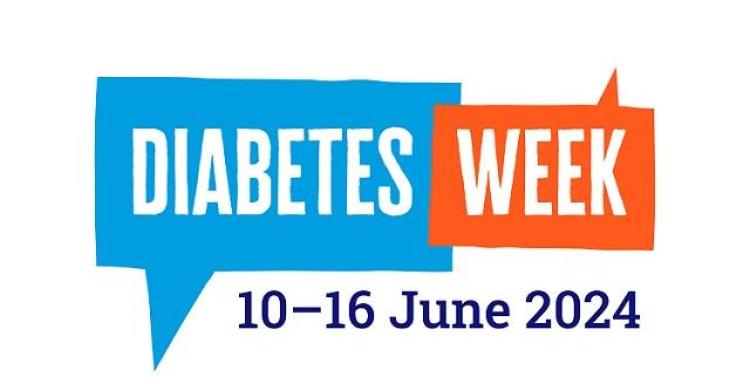Diabetes Week 2024

Diabetes Week (10-16 June 2024) is a week to make some noise, raise awareness and shout about the things that matter to people with diabetes, shining a light on what it’s like to live with day in, day out.
This year, the focus is on the health checks you need when you have diabetes.
Lifee with diabetes can feel like number, check and test overload. You might feel fine, or feel like you don’t have the time. Or maybe you’re not sure what checks you should be getting. But these regular diabetes health checks are vital to keep you healthy, so you can continue living life to the full.
Find out how you can get involved below, and if you have any questions, get in touch by emailing diabetesweek@diabetes.org.uk
Click here to visit the website for more information and advice
What diabetes health checks should I be getting?
As part of your annual review, these are the health checks you should be offered:
A blood test where enough blood is taken to be sent to the lab to check your:
- HbA1c your average blood sugar levels for the past three months
- Cholesterol levels how much fat is in your blood
- Kidney function how well your kidneys are working.
You should be asked to provide a urine sample that is sent to the lab to check:
At the appointment you should also have:
- A foot check which may be done safely once every two years if your last check showed no problems
- Your weight and height measured to work out your Body Mass Index (BMI)
- Your blood pressure measured.
Your healthcare team will also ask if you smoke, so you can be offered help to stop.
It may not be at your annual review appointment, and is likely to be done by a different team, but you should also be invited to:
- A diabetic eye check this is not the same as a sight test at the optician. Photos are taken of your eyes to see how diabetes is affecting them, as it can damage the blood vessels and cause an eye problem called diabetic retinopathy.
If your last diabetic eye check was clear, it may be safely offered once every two years rather than once a year.
Preventing type 2 diabetes
Around 13.6 million people in the UK are at risk of developing type 2 diabetes. It’s a serious condition that can lead to other health problems sometimes called diabetes complications. Unlike type 1 diabetes, type 2 diabetes can sometimes be prevented. Research has shown that for some people, a combination of lifestyle changes can reduce their risk of type 2 diabetes by about 50%. And we’re here to support you to make changes.
How can I lower my chances of developing type 2 diabetes?
You can find out the level of your own risk of type 2 diabetes and what to do to lower it by putting information into our free Know your risk of type 2 diabetes tool and getting the results. It’s free and only takes two or three minutes. You'll need to know your height, weight and waist measurement.
There are some factors that put you at increased risk of type 2 diabetes that you can’t change, such as your age and ethnicity or medical history.
But the main things you can do to lower your chance of developing type 2 diabetes is to eat more healthily, lose weight if needed so you have a healthy weight and healthy waist size and to move more.
Looking after your weight and being more active makes it easier for your body to manage your blood sugar levels and help prevent insulin resistance, which can lead to type 2 diabetes.